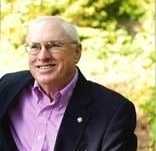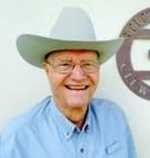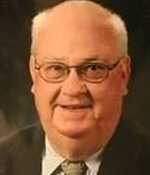Spotlight on the Latest Florida Ag Hall of Fame Inductees
Florida Agriculture Commissioner Nikki Fried has announced the Florida Agricultural Hall of Fame inductees for 2021. The induction ceremony is scheduled to be held at the Florida State Fair’s Agricultural Hall of Fame Banquet on Feb. 16, 2021.
The four individuals selected by the organization are being recognized for achievements and the global impact each has had on the industry and fair-trade practices, Fried noted. “Their commitment proudly exemplifies the best of Florida agriculture, and their leadership paves the way for thousands of growers, ranchers, and educators to cultivate innovative practices and groundbreaking research throughout the nation.”
The Florida Agricultural Hall of Fame Class of 2021 includes:
Reggie Brown has had a profound and lasting effect on the tomato industry in Florida and beyond. After 12 years as a UF/IFAS Extension Service agent in various capacities and a 10-year stint at the Florida Fruit & Vegetable Association as Marketing and Membership Director, Brown was named Executive VP of the Florida Tomato Exchange while at the same time leading the Florida Tomato Committee and the Florida Tomato Growers Exchange.
As the face of the Florida tomato industry, Brown led on numerous fronts, including unfair Mexican trade practices, tomato food safety, and the effort to retain the use of methyl bromide as a crop-protection tool and stood at the forefront of fostering fair trade for the tomato industry and resolving trade disputes. He successfully worked to gain consensus among growers, regulators, and other stakeholders to develop statewide food safety standards for Florida fresh market tomatoes. Those efforts became the benchmark for the development of the national produce safety guidance. As chairman of the Crop Protection Coalition, Brown was the voice of the industry nationally and internationally.
Bobby McKown spent his career championing and defending Florida agriculture and the Florida citrus industry’s health and well-being, including leading the industry through a critical period as head of Florida Citrus Mutual.
Over the course of his career, he earned a reputation as an expert in international trade negotiations and was appointed by five presidential administrations to every trade committee, task force, and advisory position of any influence. He participated in developing four different trade agreements, including the North American Free Trade Agreement and the General Agreement for Tariff and Trade.
John Stitt saw a great need for research in beef cattle pastures, citrus, and sugarcane production. This vision led to the development of the UF/IFAS Southwest Florida Research and Education Center in Immokalee. In 1988, the Board of Regents, UF/IFAS leadership, and the council developed a five-year plan to complete the staff funding. The result was the opening of a fully-funded research center staffed with a director and 12 researchers.
In addition to serving on numerous advisory committees to the Immokalee center, Stitt has been extensively involved in industry organizations, including the Florida Cattlemen’s Association and Florida Farm Bureau.
Dr. Wayne Smith’s contributions to Florida agriculture encompass his lifelong devotion to education and research and forestry passion. Smith, a native of Marianna, FL, and graduate of the University of Florida, returned to his alma mater in 1964, advancing through the academic ranks as a professor, director, and finally professor emeritus. In retirement, he served as interim dean for UF/IFAS Research and the College of Agricultural and Life Sciences. He proved to be a groundbreaking educator, researcher, and administrator.
Smith played a crucial part in developing and implementing the first best management practices (BMPs) for silviculture. BMPs have been adopted across Florida’s agricultural industry. His research in fertilization led to practices that increased pine forest productivity by up to 300%. And his pioneering work in bioenergy made Florida a leader and earned accolades from the U.S. Department of Energy. Smith’s work has been recognized around the globe.












